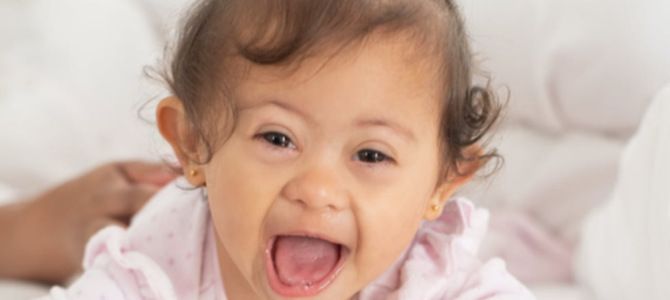A bill introduced by the South Dakota governor’s office to ban abortions based on the diagnosis of Down syndrome was unanimously supported in the House State Affairs Committee hearing Wednesday.
In cases where the mother, whether intentionally or unintentionally, fails to comply and gets an abortion on the basis of a Down syndrome diagnosis anyway, the bill says she or her survivors can bring civil action against the abortionists and the abortion facility. The bill specifies that the mother of the child cannot be prosecuted, and it also includes a section that says the proposed law would not apply to any abortion that is “necessary to save the life of the pregnant woman because her life is endangered by a physical disorder … if no other medical procedure would suffice for that purpose.”
Gov. Kristi Noem called for the bill in her State of the State address in January. “European countries, like Iceland and Denmark, are on pace to virtually eliminate children with Down syndrome,” Noem said in her address. “They do this one way and one way only: through abortion. As South Dakotans, frankly, as human beings, we should all be appalled by this. We are better than that.”
Those who testified in favor of the bill included representatives from the Susan B. Anthony List and Charlotte Lozier Institute, South Dakota families who have children with Down syndrome, South Dakota Right to Life, and the South Dakota Catholic Conference.
Among those testifying was Katie Shaw, a woman living with Down syndrome, who is a pro-life lobbyist and advocate for anti-discrimination abortion laws. Shaw explained her mother’s doctors didn’t mention abortion when she was given a prenatal Down syndrome diagnosis. Doctors told her parents she would need surgery the day she was born to “start planning what would help me have a wonderful life.”
“Down syndrome should never be a death sentence, especially in a society like ours that prides itself on diversity and inclusiveness,” said SBA List state policy Director Sue Liebel. “Here in the United States, as many as 67 percent of unborn babies diagnosed with Down syndrome are aborted. It is time our laws caught up with basic compassion and overwhelming public opinion. We are proud of Gov. Noem and South Dakota lawmakers who are leading the charge to end lethal discrimination, and we hope to see more states follow their example.”
Tara Sander Lee, senior fellow and director of life sciences at the Charlotte Lozier Institute, stated in her testimony:
Eliminating young lives is not the answer to eliminating disease and disability once a risk of the disorder is identified. … Such acts become a modern-day form of eugenics. HB 1110 would provide necessary, distinct protections for developing human beings at risk for Down syndrome, preventing discrimination based on genetics or disability.”
Another abortion-related bill was passed through the committee Wednesday morning requiring women to sign a statement saying their physician informed them of the risks associated with abortion and told them sex-selective abortions are illegal in South Dakota. It also says women need to know they can change their minds about an abortion after the first and before the second dose in cases of medication abortion and they must be provided information about other options.
A Marist/Knights of Columbus poll last month found that 70 percent of Americans oppose abortion based on the expectation that an unborn child may have Down syndrome, including 56 percent of those who identify as pro-choice, 59 percent of Democrats, and 70 percent of independents.
The Supreme Court declined to hear a case concerning Indiana’s anti-discrimination abortion law in May 2019. Justice Clarence Thomas wrote at the time that the court has not decided “whether the Constitution requires States to allow eugenic abortions.” The “use of abortion to achieve eugenic goals is not merely hypothetical,” Thomas argued. “Put differently, this law and other laws like it promote a State’s compelling interest in preventing abortion from becoming a tool of modern-day eugenics.”
Similar human rights legislation set to curtail the extermination of people with Down syndrome has been enacted in eight states and introduced in the U.S. House of Representatives.
With more lawmakers taking legislative action to protect the disproportionate victims of abortion — poor people, racial minorities, and those with special needs, including Down syndrome — the Supreme Court may very soon find itself with another anti-discrimination abortion case on its hands.









